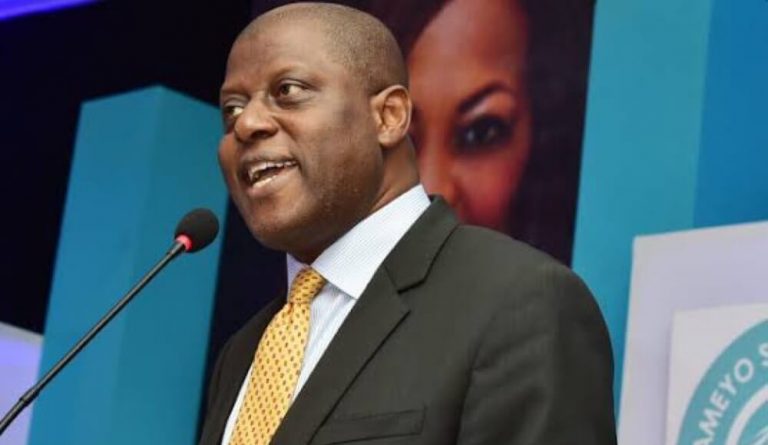
The Governor of the Central Bank of Nigeria (CBN), Yemi Cardoso, has conceded that the central bank lacks a “magic wand” to address the current economic challenges facing Nigeria.
Following growing public outcry over the nation’s current economic situation and mounting pressure from stakeholders to turn the fortune around, the CBN has been caught in the mix. The apex bank’s attempts for years to change the economic trajectory with varying monetary policies failed.
In a speech delivered via email on Tuesday, as reported by Reuters, Cardoso highlighted the pressing issues of a depreciating naira, double-digit inflation projected to reach 30% in the near term, and a staggering N87 trillion debt.
Register for Tekedia Mini-MBA edition 17 (June 9 – Sept 6, 2025) today for early bird discounts. Do annual for access to Blucera.com.
Tekedia AI in Business Masterclass opens registrations.
Join Tekedia Capital Syndicate and co-invest in great global startups.
Register to become a better CEO or Director with Tekedia CEO & Director Program.
“The CBN does not have a magic wand that can be waved at the current economic challenges,” he said.
The biting economic situation has resulted in a recent surge in borrowing by Nigerians. According to the CBN’s Economic Report for the second quarter of 2023, consumer credit, encompassing personal and retail loans, witnessed a notable 12.2% rise from N2.35 trillion in the first quarter to N2.64 trillion in the second quarter of the same year.
This translates to a substantial increase of N290 billion in the span of three months, specifically between April and June. As of June 2023, out of the total consumer credit of N2.64 trillion, personal loans constitute N1.92 trillion (72.9%), while retail loans account for N715.10 billion (27.1%).
But despite his acknowledgment, the CBN governor outlined the bank’s strategy to foster economic growth. He emphasized supporting emerging sectors through institutions and financial products, expanding financial inclusion, and rallying multilateral stakeholders to endorse government and private sector initiatives.
In a significant shift from previous practices, Cardoso revealed the central bank’s intention to withdraw from direct development financing interventions. He said the CBN aims to transition to more limited advisory roles that align with the government’s economic agenda.
“There is a need to pull the central bank back from direct development finance interventions into more limited advisory roles that support economic growth,” explained Cardoso.
This departure from direct intervention is a departure from the approach of Godwin Emefiele, the preceding governor of the CBN. Emefiele had maintained an artificially strong naira and pursued unorthodox monetary policies, providing liquidity to money markets through interventions and exceeding constitutional thresholds by offering loans to the federal government.
Emefiele’s direct funding of government interventions, particularly in sectors like agriculture, and loans through the Ways and Means Act, amounted to more than N23 trillion. For instance, the CBN said it released N1.079 trillion under the Anchor Borrowers Programme, out of which over N500 billion is due for repayment. The amount yet to be recovered by the apex bank represents about 52.39 percent of the total loans collected by farmers under the programme, according to the CBN.
Against this backdrop, the current CBN governor’s strategy aims to address concerns that the blending of monetary and fiscal policies has hampered the central bank’s ability to control inflation and manage foreign reserves effectively.



